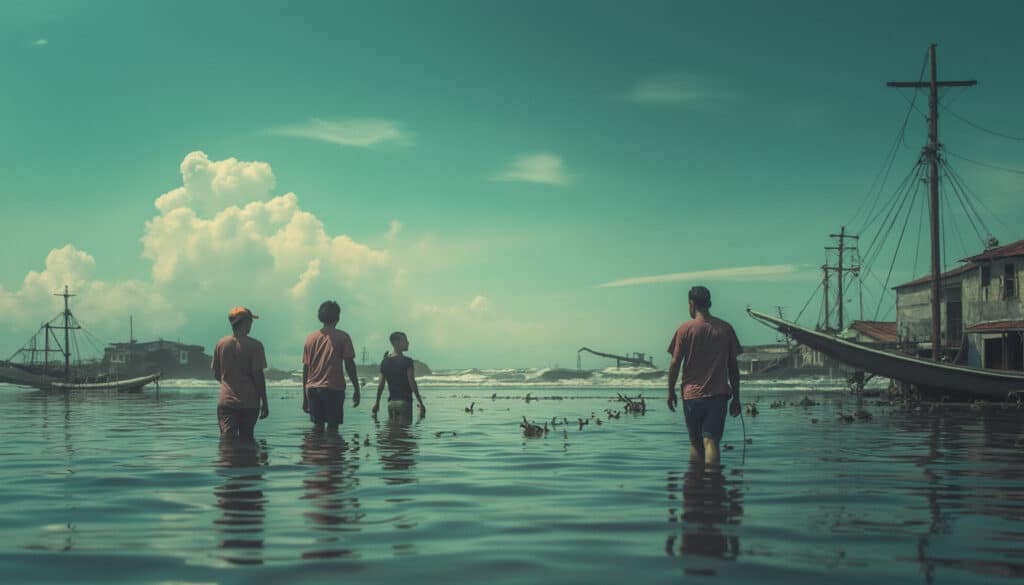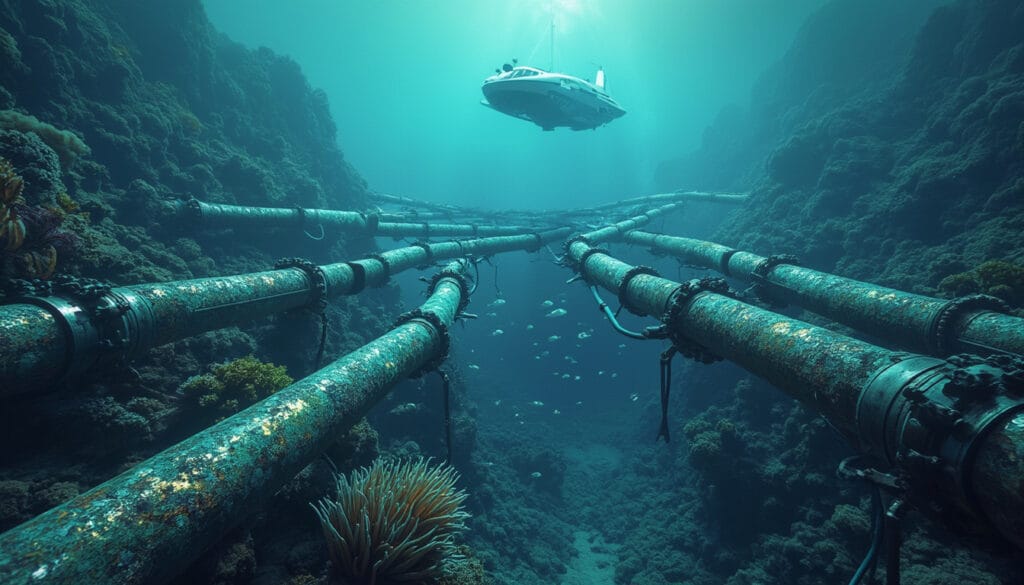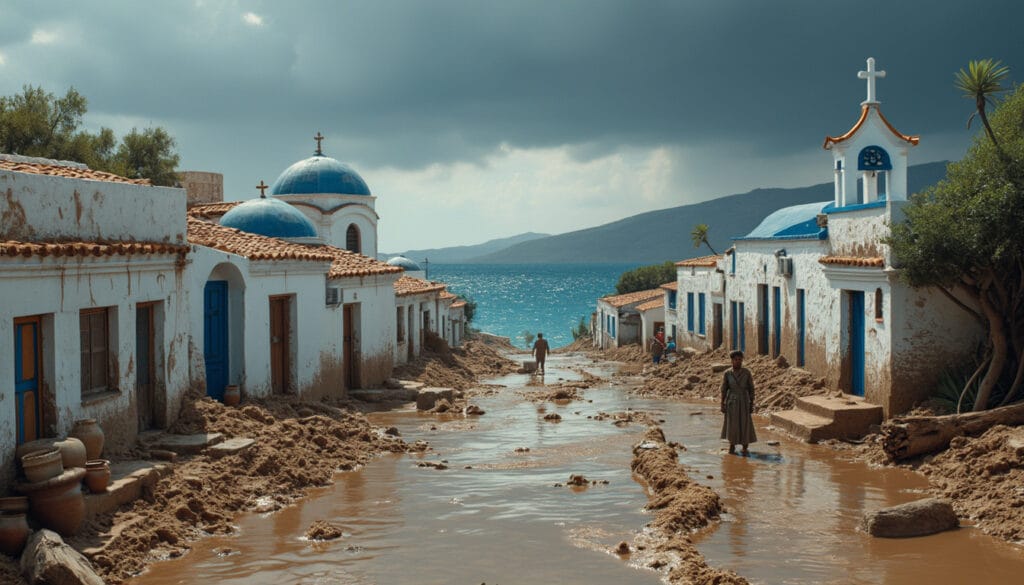In Papua New Guinea, the relentless rise in sea levels is turning coastal residents into climate refugees. In Gulf province, near Pariva beach, thousands of residents, once reliant on fishing and coastal agriculture, are forced to leave their dangerously eroded lands. As Kerry Anne Henry witnesses the growing despair of her village, many have no choice but to move to higher ground, taking with them the remnants of their lives shattered by a changing nature.
In Papua New Guinea, rising waters and beach erosion, particularly around Pariva, have forced thousands to flee inland. Fishermen like Siri James find themselves uprooted, leaving the coast where they grew up. This situation is attributed to climate change that alters climate patterns, making fishing and farming more difficult. According to the advisor of Kerema, about half of the 80,000 residents in this area have had to relocate since 2015. This phenomenon represents a humanitarian crisis highlighting the vulnerability of these communities. However, resources to assist these populations are limited, and a proposed sand mining project threatens to worsen the situation. Authorities are working on resilience measures, but activist Duncan Gabi believes that it remains insufficient.
challenges of relocation in Papua New Guinea
On the southern coast of Papua New Guinea, residents of villages such as those near Pariva beach face challenges posed by rising waters. The ever-increasing tides force thousands to abandon their traditional seaside homes and settle further inland. The sea that has nourished these fishermen is gradually becoming their enemy. The question of preserving their ancestral way of life arises with increased urgency.
local environmental and socio-economic impact
In the affected regions of Kerema, where the population has drastically decreased due to forced displacement, the socio-economic repercussions are profound. Local activities, such as fishing and coconut farming, are severely disrupted. Climate change affects not only the tides but also alters weather patterns, complicating the daily lives of farmers and fishermen. These upheavals also erode cultural and familial networks, heightening social fragility.
government response and strategy
In response to these disruptions, the government of Papua New Guinea is ramping up efforts to propose sustainable solutions. Initiatives include conducting vulnerability assessments and developing climate resilience measures. However, the response remains inadequate according to local environmental activists, highlighting an urgent need for actions to prevent any worsening of the crisis. The discussed mining initiative at Orokolo Bay only fuels public distrust. These efforts need to be strengthened to ensure that affected communities are not overlooked in centralized decision-making.
Articles similaires
Thank you!
We will contact you soon.














